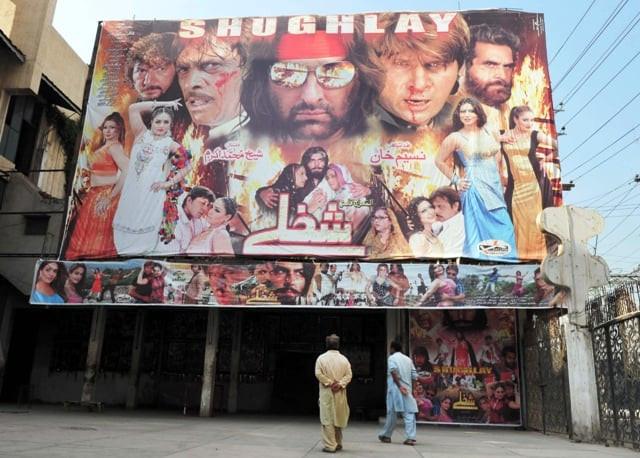Violence changes Pakistan song book
Pakistanis now write less about affairs of heart, more about tragedy of suicide attacks and militant insurgency.

Once inspired by romance, Alam is part of a growing number of Pakistanis changing the lexicon of the song book, writing less about affairs of the heart and more about the tragedy of suicide attacks and militant insurgency.
"O Peshawar, I watch helplessly when your lovers' blood becomes rain. Helplessly, with tears in my eyes, I read their funeral prayer," he sings in one of his greatest hits in the northwestern city on the Afghan border.
Being a singer in one of the most dangerous parts of the world can be lethal. The Taliban think music is ungodly. Music shops are bombed. Dancers have been killed and singers threatened with death.
In 2004, Alam was worried enough to move to Quetta, the then relatively peaceful capital of Balochistan.
But he was hit by a speeding car, critically injured and now has a rod in his right leg and uses crutches to walk.
He blamed militants and returned to Peshawar in 2008. That October, gunmen opened fire on his car on the outskirts of the city. He survived a second time.
"I can see tears in people's eyes, when I sing and I want to create an awareness using my voice," Alam told AFP in the dank basement flat where he lives with his wife and six children, with no name plaque on the gate.
"We have stopped giving musical shows," he said. "I have received dozens of phone calls and SMSs threatening me to stop singing."
Peshawar, the largest Pashtun city in the world and once a base for Osama bin Laden during the 1980s' CIA-sponsored mujahedeen against the Soviets in Afghanistan, has been on the frontline of a Taliban insurgency for years.
More than 500 bomb attacks have killed 4,700 people across Pakistan since government troops stormed Lal Masjid (Red Mosque) in Islamabad in 2007.
They have maimed hundreds more, targeting government security forces and ripping through shops, mosques and restaurants.
Although there has been a drop in attacks in the eight months since bin Laden was killed at his Pakistani compound on May 2, fear remains palpable.
Sitara Younus made waves on YouTube this year with her lyrics: "I am a suicide blast, I do everything by force and I rule everywhere".
The song was a track from the Pashtu film "Sabar me Tamam Sho" which translates as "I have lost my patience".
"Do not chase me, I am a cheater, I am a suicide blast. I have looted people's hearts," she sings.
It may not have been popular among conservative Pashtuns and criticised as "vulgar", but it showed how far violence has permeated popular culture.
Many artists and singers have retired. Certainly they keep a low profile. Even shopkeepers dice with death to sell music.
On September 19, a motorcycle bomb killed five people and wounded 28 others at a CD market in Peshawar. Traders say hundreds of music shops have been destroyed in recent years.
Amjad Naveed, a writer and producer of several low-budget, limited-distribution Pashtu films, also believes that violence has ushered in a new trend of preaching peace and patience through music.
"You see the trend in Pashtu music changing because of the bombings," he told AFP. "People are dying, children are dying and poets write such things when they see the devastation and singers sing it," he added.
Abasin Yousafzai, a renowned poet and professor of Pashtu at the University of Peshawar, agrees.
"Poets are always inspired by what happens around them. Poets and singers are sensitive people and they serve society through their poetry," he said.
Neither is the trend limited to the northwest. Ali Azmat, one of the most famous rock stars, has a hit song "Bom Phata" (Bomb Exploded) that exposes not just the violence, but the shortages and inflation facing Pakistanis today.
In the video, people are shown standing by in frustration, waiting for electricity, food and water while Azmat sings about bombs exploding everywhere until a mob storms the stage, violence erupts and shots are fired.
"We are killing each other, why blame others. We are each others enemies, why blame others," sings Irfan Khan, another famous Pashtu singer.
Conspiracy theories run rife in Pakistan, where it is common currency to blame the Americans and the war in Afghanistan for the country's ills.
But many singers believe that until Pakistanis face up to reality and take their own destiny into their hands, nothing will change.
"We are a part of this society and we are trying to create awareness," Khan told AFP.



















COMMENTS
Comments are moderated and generally will be posted if they are on-topic and not abusive.
For more information, please see our Comments FAQ